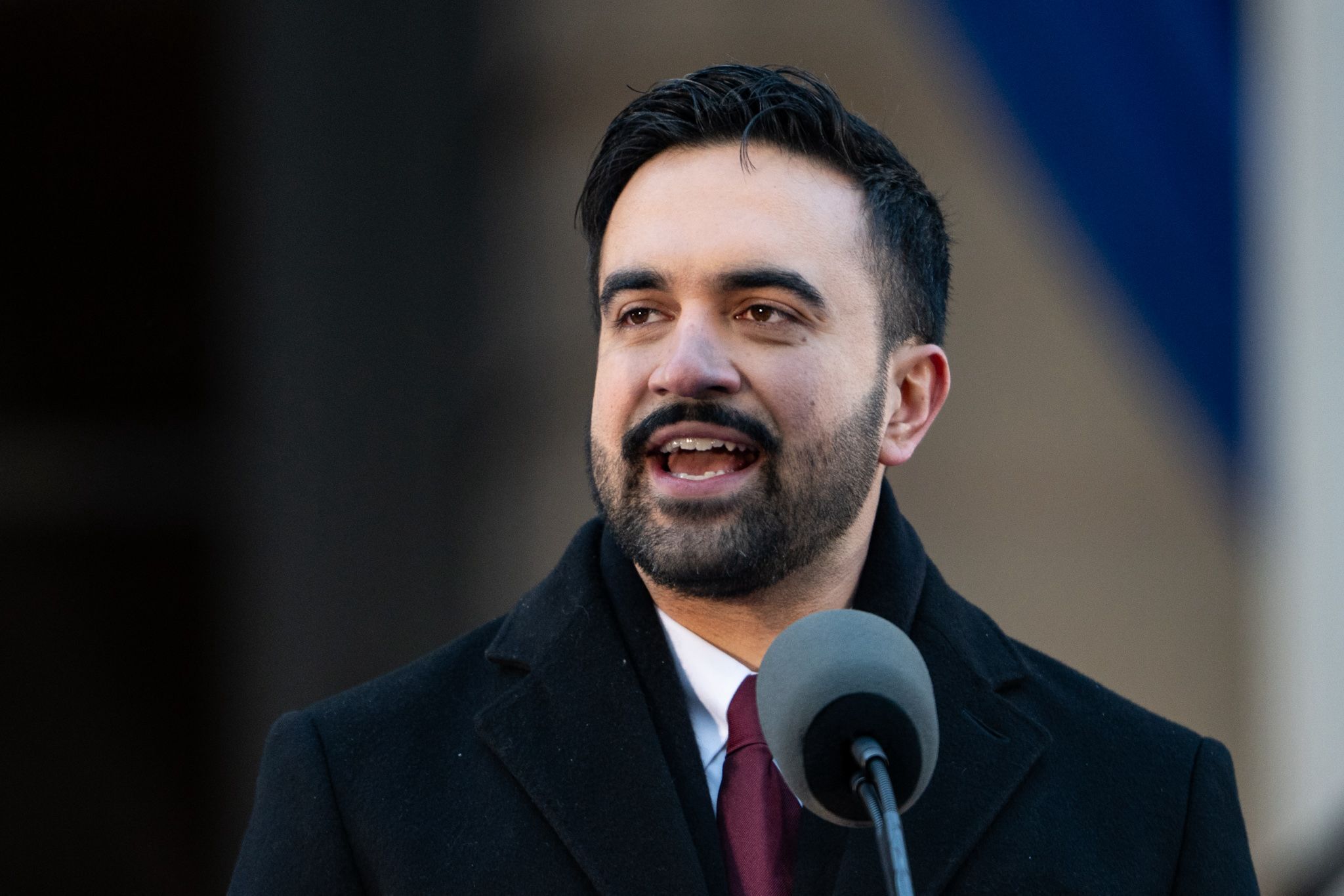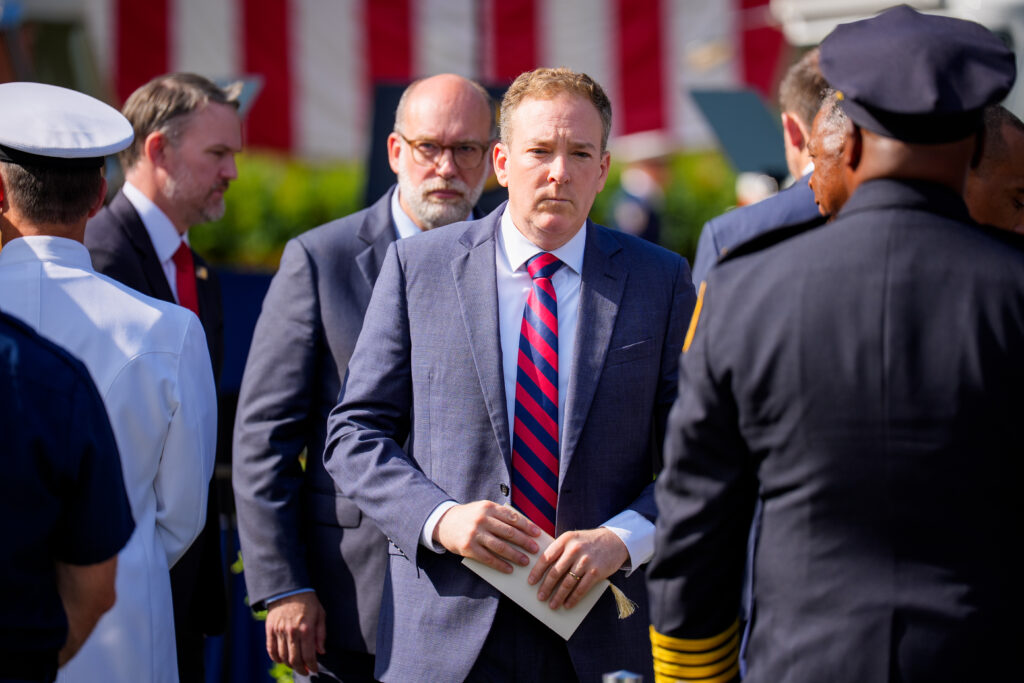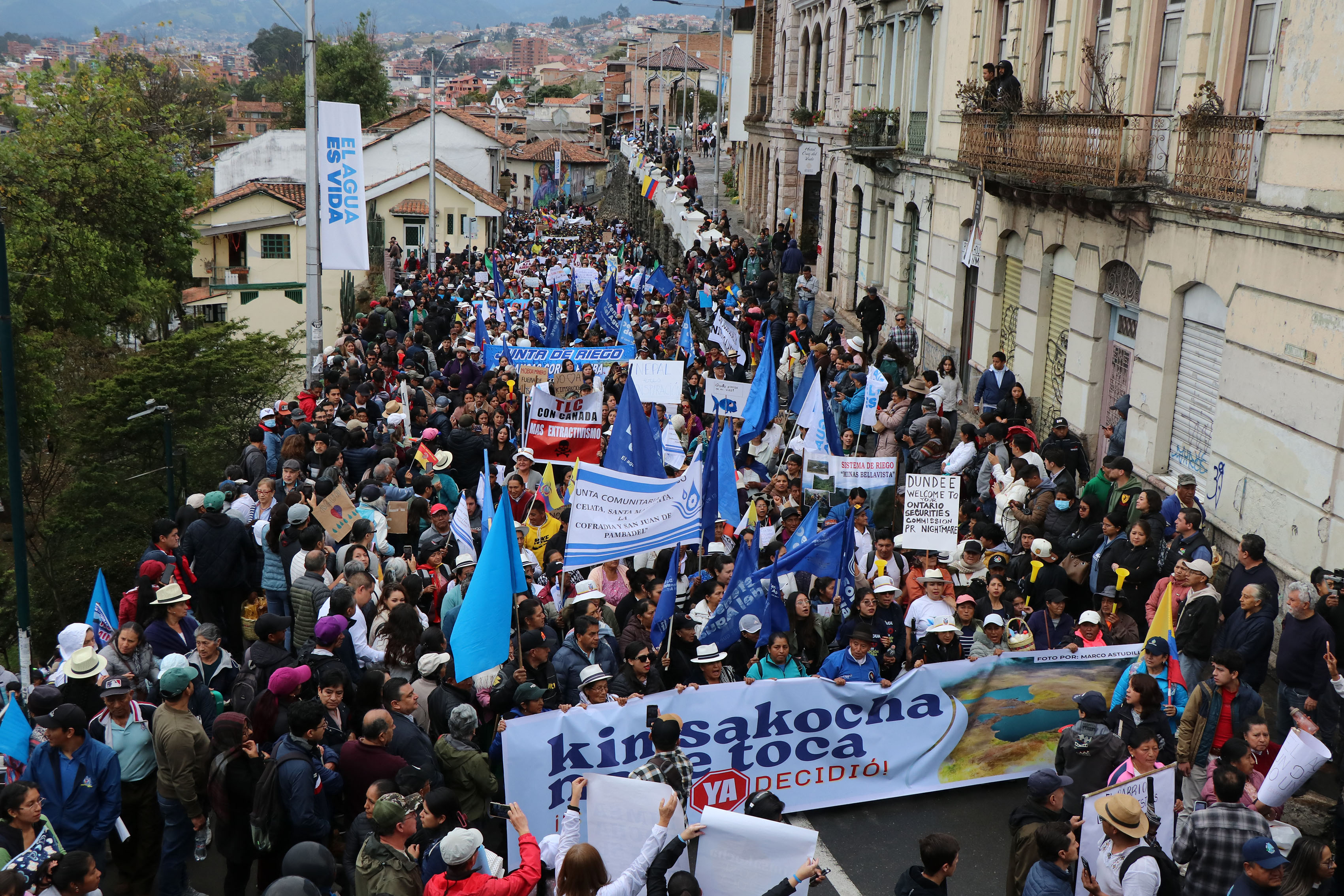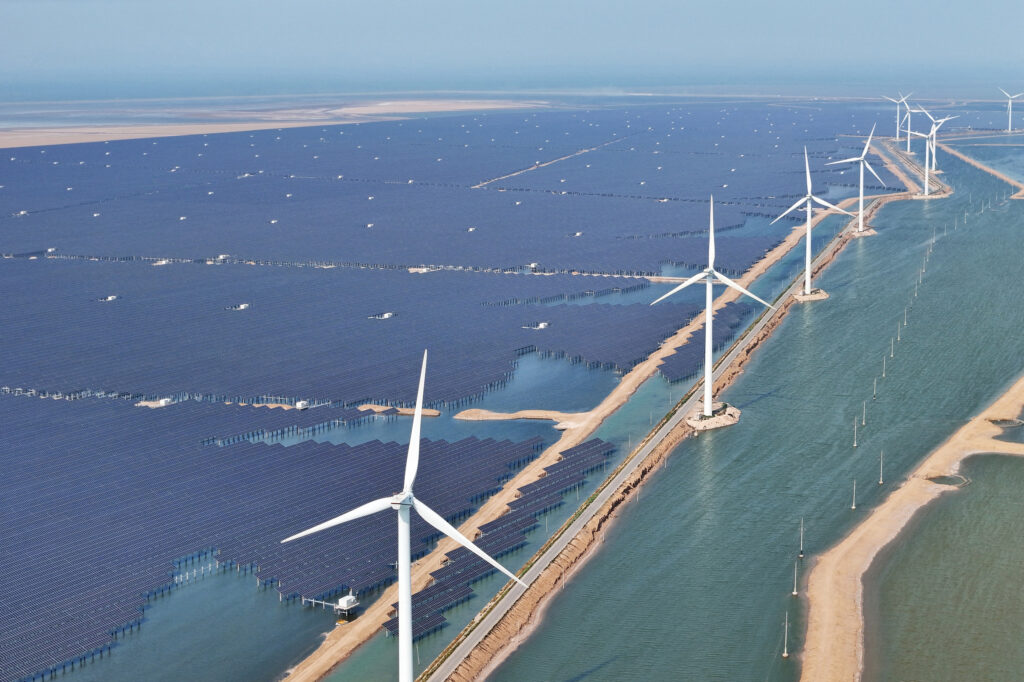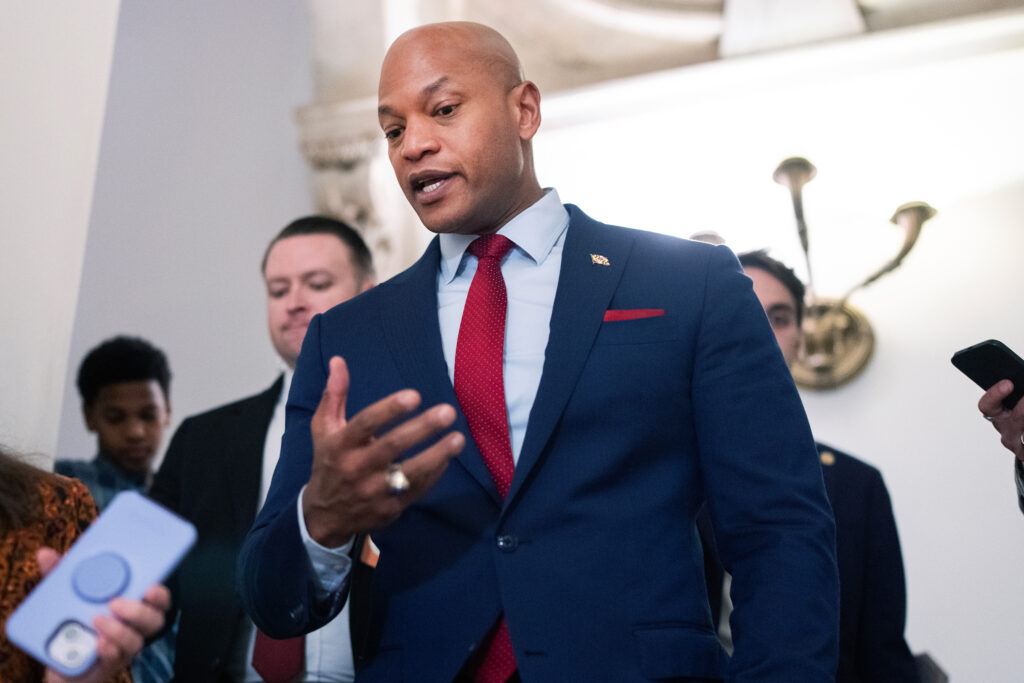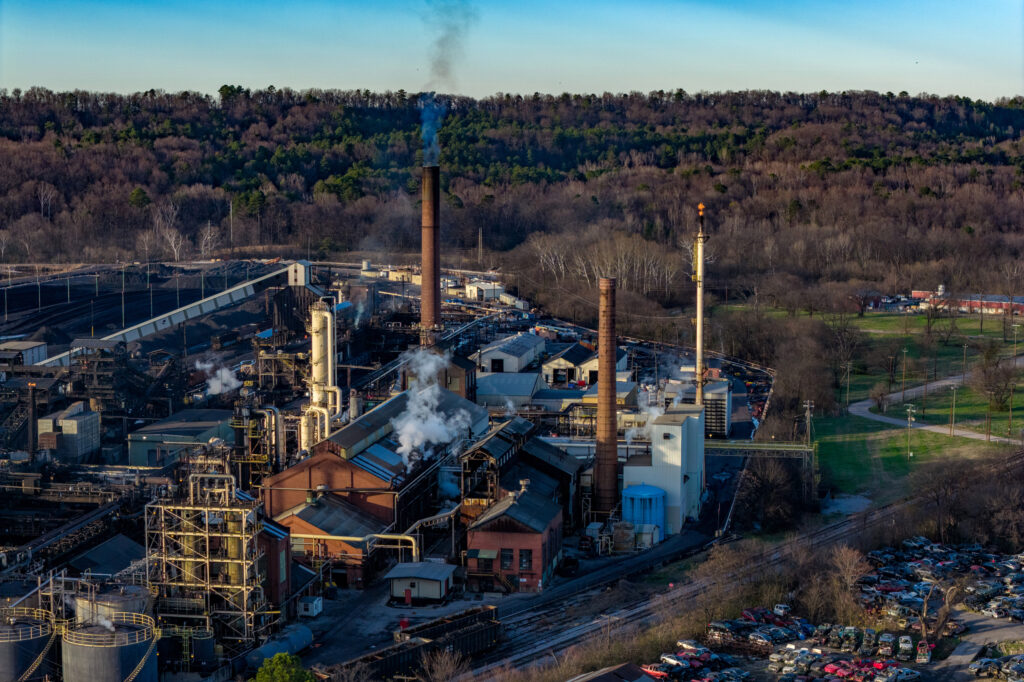From Pacific Island students to executives at global organizations like Greenpeace, a wide swath of people are losing patience with the slow and often uneven international process for reining in climate change.
This week, more than 200 civil society and Indigenous peoples’ groups released a joint statement calling for major reforms, from how decisions are made to changes involving corporate involvement.
The letter came as countries were meeting in Germany to prepare for the 30th annual Conference of the Parties (COP), the decision-making body of the United Nations Framework Convention on Climate Change, or UNFCCC for short.
The talks in Germany were the first without an official U.S delegation, as my colleague Bob Berwyn reported last week.
The joint statement is the result of years of frustration with the COP format and its inability to address climate justice concerns.
“We have seen the COP process deteriorating over the years,” said Lien Vandamme, senior campaigner for human rights and climate change at the Center for International Environmental Law, a group that signed and helped coordinate the statement. “We see an ever-growing COP that is not all leading to more inclusivity or action.”
That frustration was echoed at the climate talks in Germany that wrapped up Thursday. Representatives of countries most threatened by climate catastrophes warned that nations aren’t moving fast enough to address the compounding crises from an overheating planet.
“Every fraction of a degree matters,” said Evans Njewa, chair of the United Nations group of Least Developed Countries.
Finance Frustration: Advocates see COP29, held in Azerbaijan last year, as a case in point for their reform push.
Dubbed “the finance COP,” the summit was supposed to galvanize wealthy countries most responsible for climate change to increase the money they provide developing countries to reduce emissions and adapt to climate impacts.
That would update developed countries’ 2009 pledge to provide or mobilize $100 billion a year by 2020, an amount that might sound enormous but that falls far short of the climate costs developing nations are grappling with. Meanwhile, developed countries didn’t hit that target until 2022 and fell short of promises in other ways, the Center for Global Development found in an analysis last year.
Enter COP29. Developing countries requested $1.3 trillion per year by 2035 to help transition to clean energy and make adaptations to get ahead of the rapidly warming planet’s mounting consequences. In the final hours of negotiation, that was cut to $300 billion, with $1.3 trillion mentioned in summit documents as an aspirational goal for later.
“The UNFCCC has reached a critical breaking point,” this week’s letter reads. “Climate negotiations have systematically failed to deliver climate justice and undermined international law.”
The call for reform focuses on five changes:
- Switching to majority-based decision-making. The current consensus-based process requiring full agreement allows the largest polluters to water down outcomes, the letter’s signers say. “The climate process must no longer be held hostage by the narrow interests of a few,” the coalition writes.The group also wants COPs led only by host countries demonstrating “tangible progress” on climate action. Recent summits in petrostates, like the United Arab Emirates and Azerbaijan, drew intense criticism for their conflicts of interests.
- Stopping “corporate capture.” Fossil fuel companies and other major contributors to climate change increasingly dominate COPs. The coalition wants “strong accountability framework to protect against corporate interest and those with vested interests,” and no more commercial partnerships. (Ninety percent of COP29’s sponsors had fossil-fuel ties, one analysis found.)
- Upping accountability. Since the ratification of the Paris Agreement, developing nations have become increasingly frustrated with the lack of enforceability of international obligations. The coalition believes compliance can be improved through incentives for action and penalties for failure. The group also wants to bring climate negotiations out from behind closed doors.
- Protecting human rights. In the lead up to COP29, Azerbaijan arrested more than 30 journalists, activists and human rights defenders. During the conference, organizers created strict protest zones to control activist mobility and speech. The coalition says the UNFCCC must “ensure that COP hosts uphold international human rights standards, particularly freedom of expression and peaceful protest.”
Repeated Asks for Reform: This is not the first time people have demanded COP reform.
Inside Climate News’ Berwyn, who reports on the COPs, has documented the mounting frustrations of activists and civil society groups for years. During COP29 in November, he wrote about a high-profile letter signed by people including former UNFCCC leader Christiana Figueres, former U.N. Secretary-General Ban Ki-moon and Mary Robinson, former president of Ireland. Previous calls for reform have met with little success, however.
“Most of the things that are in this statement have been raised at some point over the past 30 years but have gone away over time,” the Center for International Environmental Law’s Vandamme told me, referring to this week’s letter. “This is the first time all the different elements and demands have come together in one place, and under a united front.”
Most changes to the process would have to come through that process itself. This means UNFCCC member states must all agree on any proposed changes—which makes sweeping reform difficult or impossible.
I reached out to the UNFCCC for comments about the coalition’s demands and any plans the institution may have to change the climate talks, but I didn’t get a reply.
COP30 will be held in Brazil this November. Vandamme hopes organizers will consult with the coalition as they plan the talks and create a conflict of interest policy.
With extreme heat, hurricanes, wildfires, drought and other climate consequences worsening, there’s no time to waste, the coalition believes.
“Global climate governance is increasingly perceived as out of touch, driven by vested interests, and running out of relevance and trust,” they write. “The time is now for the UNFCCC to become the climate regime it should have been for the past decades: one centered around international law and obligations to prevent dangerous climate change.”
More Top Climate News
New York Gov. Kathy Hochul has directed the New York Power Authority to develop a new nuclear power plant, according to The Wall Street Journal. This would be the first major nuclear power project started in the U.S. in 15 years and the first in the state since Unit 2 of Nine Mile Point became operational in 1988. If approved, the plant would add 1 gigawatt of energy production to the state. The project is “a big test of President Trump’s promise to expedite permitting for such projects,” Ryan Dezember and Jennifer Hiller write for the Journal. The Guardian reports that the governor’s decision drew harsh criticism from renewable energy groups.
Surveys of just over 40,000 people across 20 high- and middle-income nations found that a majority of people support a carbon tax, Grist reports. By placing a fee on a set amount of carbon, the tax would penalize large emitters and reward those with a small carbon footprint. A new study about the surveys, published in Nature, showed that Japan had the highest level of acceptance, with 94 percent of respondents supporting a carbon tax. About half of Americans surveyed would back a carbon tax, with about 75 percent of Biden voters and 26 percent of Trump voters in support.
The death toll from devastating floods in South Africa has topped 100, according to The Associated Press. Heavy rains hit South Africa’s Eastern Cape province earlier in June, but officials updated death numbers on Thursday. The storm also created an estimated $288 million in damages. The country’s president, Cyril Ramaphosa, blamed the heavy rains on global warming. “During winter, we expect cold as well as snow here in the Eastern Cape,” he said. “Now that we are confronting floods, this goes to show the severity of the issue of climate change.”
Friends of the Everglades and the Center for Biological Diversity filed a lawsuit on Friday to block the construction of a migrant detention center in Florida, according to The Associated Press. Construction on the project, nicknamed “Alligator Alcatraz,” began on Monday in Big Cypress National Preserve, according to Al Jazeera. The lawsuit says the project did not have an environmental review or opportunity for public comment, both of which are required.
About This Story
Perhaps you noticed: This story, like all the news we publish, is free to read. That’s because Inside Climate News is a 501c3 nonprofit organization. We do not charge a subscription fee, lock our news behind a paywall, or clutter our website with ads. We make our news on climate and the environment freely available to you and anyone who wants it.
That’s not all. We also share our news for free with scores of other media organizations around the country. Many of them can’t afford to do environmental journalism of their own. We’ve built bureaus from coast to coast to report local stories, collaborate with local newsrooms and co-publish articles so that this vital work is shared as widely as possible.
Two of us launched ICN in 2007. Six years later we earned a Pulitzer Prize for National Reporting, and now we run the oldest and largest dedicated climate newsroom in the nation. We tell the story in all its complexity. We hold polluters accountable. We expose environmental injustice. We debunk misinformation. We scrutinize solutions and inspire action.
Donations from readers like you fund every aspect of what we do. If you don’t already, will you support our ongoing work, our reporting on the biggest crisis facing our planet, and help us reach even more readers in more places?
Please take a moment to make a tax-deductible donation. Every one of them makes a difference.
Thank you,






